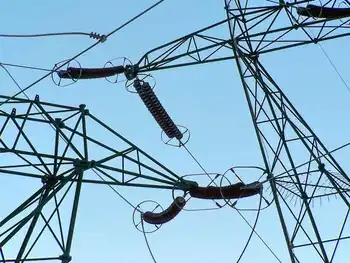Renewable World
Grand Cayman, Cayman Islands - - Plummeting fossil fuel prices. Mainstream renewable energy sources. Increased energy storage. All these stunning facts fill the pages of the Global Status Report: Renewables 2016, an international collaboration combining the latest on renewable energy industry, market and policy trends, released recently by the Renewable Energy Policy Network for the 21st Century REN21.
REN21 is a global network comprised of national governments, research institutions, international organisations, academic, and nongovernmental organisations that strives to create a worldwide transition to renewable energy through knowledge exchange, policy development and collective action. The annual Global Status Report GSR has now become the most referenced report on renewable energy globally.
The results are clear. Renewable energy is now being recognised globally as a mainstream energy source. The GSR highlights several factors that have facilitated its growth, including an increase in cost-competitiveness of renewable energy technologies, improved access to finance mechanisms and global investment, renewable energy focused policy development, increased energy efficiency and the application of smart grid technologies, concerns over energy security and environmental challenges, progress in renewable energy commercialisation, and a growing demand for modern energy sources across developing and emerging economies.
In 2015 the renewable energy sector provided 8.1 million employment opportunities globally, primarily from the solar, bioenergy and wind power sectors, and an additional 1.3 million employment opportunities from large-scale hydropower. The result is a renewable energy landscape that is burgeoning globally.
The biggest strides have taken place in the power sector, where renewable energy accounted for 23.7 of global electricity production in 2015, the vast majority being hydropower. Nearly 150 gigawatts GW of renewable energy power capacity were added throughout 2015, representing the highest annual increase in history.
Wind and solar energy has soared, accounting for more than three-quarters of new installations in the power sector. In fact, "the world now adds more renewable power capacity annually than it adds capacity from all fossil fuels combined," as stated in the GSR.
Advancements in the power sector have been facilitated by technological improvements, as well as enhanced access to markets and financing mechanisms. The countries leading this expansion are not surprising, as they represent some of the global powerhouses: China, United States, Brazil, Germany, Japan, Canada, and India.
While this sector has continued to be dominated by large-scale production, small-scale electricity generation is on the rise, with Bangladesh taking the lead, and many countries across the developing world following suit.
Renewable energy presence in the heating and cooling and cooling sectors, as well as the road transportation sector, has not seen such stark growth as the power sector, representing only 8 and 4 of final energy consumption respectively. A lack of policy support for these sectors has limited its potential for expansion.
In order for renewable energy to take off beyond the power sector, several interventions are required, including increased policy emphasis and support on the heating and cooling and transportation sectors, as well as public-private partnerships and a cross-cutting approach that goes beyond single sectors. This will require improved dialogue and collaboration across diverse industries and stakeholders.
A phase-out of fossil fuel subsidies and investments must also occur for renewable energy to become increasingly cost-competitive and widespread. The GSR estimates that global fossil fuel subsidies reached US$490 billion in 2014, while renewable energy subsidies were only US$135 billion.
In addition, strategic political planning will need to expand its vision beyond the next election cycle and develop long-term strategies that are centred on renewable energy transitions. Significant debate has arisen regarding the central stakeholders to forge this energy transition, particularly in international climate negotiations.
At the Paris Climate Summit, key representatives from oil, gas, and coal companies were among national governments and environmentalists gathered to draft the design of a sustainable and renewable future. These fossil fuel industries acted not only as observers to the negotiations, but also as financiers.
One such player was Engie, a French multinational electric company with 70 of their energy output attributed to burning natural gas and coal. With an annual revenue of US$80 billion, Engie served as a major sponsor for the Paris Climate Summit. In a press statement by Brandalism's Joe Elan, he said, "By sponsoring the climate talks, major polluters such as Air France and GDF-Suez-Engie can promote themselves part of the solution -- when actually they are part of the problem."
Despite these challenges, many breakthroughs are taking place. In 2015, the United Nations General Assembly declared "Sustainable Energy for All" as a Sustainable Development Goal. A total of 173 countries have created renewable energy targets, and 146 countries have incorporated renewable energy policies into national and sub-national planning. Cities, regions, and organisations across the world have signed onto the 100 Go Renewable Movement to commit to 100 renewable energy in specific sectors. The Africa Renewable Energy Initiative has been launched to achieve universal energy access across the continent with the use of renewable energy capacity.
The G7 and G20 have pledged commitments to accelerate renewable energy access and energy efficiency. Civil society is increasing its' support for a renewable world, mobilising mass actions globally, empowering the divestment movement, and urging governments to keep fossil fuel reserves in the ground. These breakthroughs demonstrate a compelling alternative to the chaotic whims of our fossil fuel powered world. As the GSR states, these are all signs that "a global energy transition is under way."
Related News

Edmonton's 1st electric bus hits city streets
EDMONTON - Your next trip on Edmonton transit could be a historical one as the city’s first battery-electric bus is now on city streets, marking a milestone for Edmonton Transit Service.
“Transit has been around since 1908 in Edmonton. We had some really small buses, we had some trolley buses several years later. It’s a special day in history today,” Ryan Birch, acting director of transit operations, said. “It’s a fresh experience… quiet, smooth riding. It’s going to be absolutely wonderful.”
In a news release, Mayor Don Iveson called it the largest purchase of electric buses in Canadian history.
“Electric buses are a…




